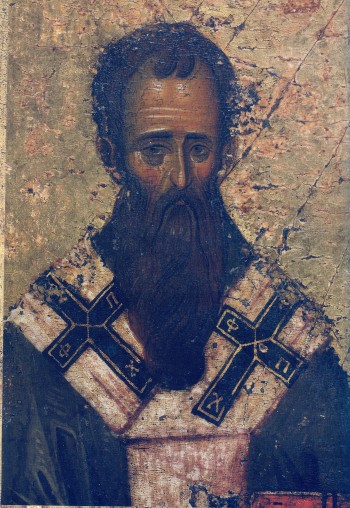The circumcision of Jesus Christ and Saint Basil the Great
2 Ιανουαρίου 2010
The circumcision of our Lord and God and savior Jesus Christ
The eighth day following His birth, the Divine Child was presented in the Temple and circumcised according to the Law existing in Israel since the time of Abraham. On this occasion, He was given the name Jesus, which the Archangel Gabriel announced to the All-Holy Virgin Mary. The Old Testament circumcision was the proto-type of the New Testament baptism. The circumcision of our Lord shows that He received upon Himself the true body of man and not just seemingly, as was later taught of Him by heretics. Our Lord was also circumcised because He wanted to fulfill the entire Law which He Himself gave through the prophets and forefathers. In fulfilling the written Law, He replaced it with Baptism in His Holy Church as was proclaimed by the Apostle Paul: “For neither does circumcision mean anything, nor does uncircumcision, but only a new creation” (Galatians 6:15). (In the cycle of the liturgical calendar of the Church, this Feast of the Lord’s Circumcision has neither a Forefeast nor an Antefeast).
Saint Basil the Great, Archibishop of Caesarea
Basil was born during the reign of Emperor Constantine. While still unbaptized, Basil spent fifteen years in Athens where he studied philosophy, rhetoric, astronomy and all other secular sciences of that time. His colleagues at that time were Gregory the Theologian and Julian, later the apostate emperor. In his mature years he was baptized in the river Jordan along with Euvlios his former teacher. He was Bishop of Caesarea in Cappadocia for almost ten years and completed his earthly life fifty years after his birth. He was a great defender of Orthodoxy, a great light of moral purity, a religious zealot, a great theological mind, a great builder and pillar of the Church of God. Basil fully deserved the title “Great.” In liturgical services, he is referred to as the “bee of the Church of Christ which brings honey to the faithful and with its stinger pricks the heretics.” Numerous works of this Father of the Church are preserved; they include theological, apologetical, ascetical and canonical writings as well as the Holy and Divine Liturgy named after him. This Divine Liturgy is celebrated ten times throughout the year: the First of January, his feast day; on the eve of the Nativity of our Lord; on the eve of the Epiphany of our Lord; all Sundays of the Honorable Fast [Lenten Season], except Palm Sunday; on Great and Holy Thursday and on Great and Holy Saturday. St. Basil died peacefully on January 1, 379 A.D., and was translated into the Kingdom of Christ.
Saint Nikolai Velimirovch, The Prologue from Ohrid




